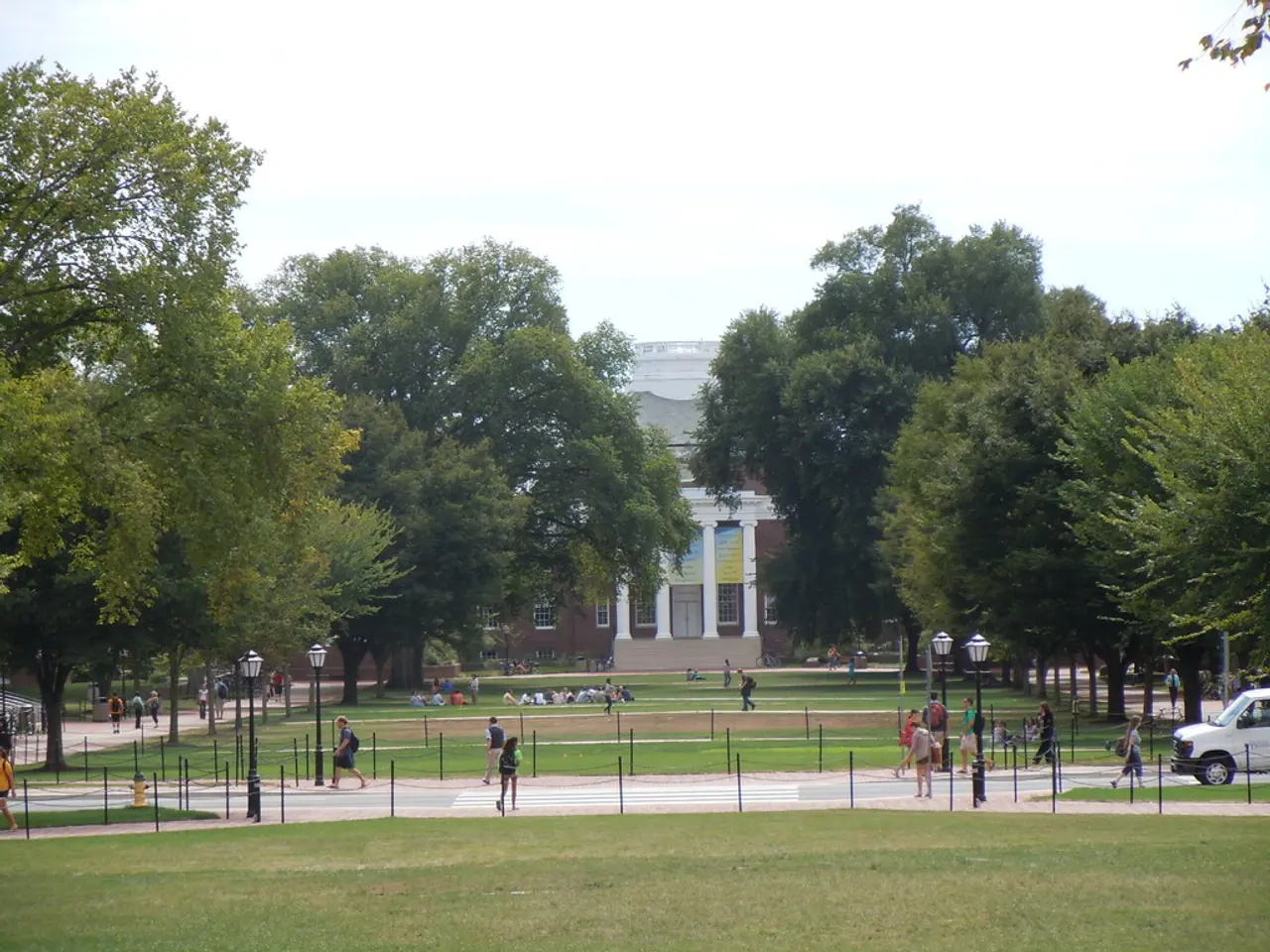Plan for scientific measures utilizing the SLH methodology
Science Learning Hub Resources Transform Science Education
Teachers across different educational levels are adapting Science Learning Hub resources to align with curriculum goals, cater to diverse student needs, and promote inquiry-based learning. This transformation involves leveraging pedagogical content knowledge (PCK) and link-making skills to select, modify, and connect resource content effectively to students' learning contexts.
The role of PCK cannot be overstated. It combines knowledge of science content with an awareness of how students learn that content, enabling teachers to tailor Science Learning Hub materials to different ages and learning stages. For instance, at the elementary level, PCK supports simplifying complex concepts while integrating engineering or inquiry elements that resonate with young learners’ experiences. At secondary and tertiary levels, it helps teachers scaffold more advanced concepts and connect them with real-world applications.
Link-making skills are equally important. Teachers use these skills to connect Science Learning Hub resources with prior student knowledge, cross-disciplinary themes, and students' cultural and experiential backgrounds. This fortifies student engagement by situating science learning in relevant contexts that make abstract concepts tangible. These skills also help in adapting materials to meet diverse learning needs by linking content with Universal Design for Learning (UDL) principles and integrating technologies or cross-curricular opportunities, such as STEAM education approaches.
In practice, at early childhood and elementary levels, teachers focus on hands-on, playful, and inquiry-based learning supported by Science Learning Hub activities, with emphasis on building foundational science understanding through exploration and linking math, literacy, and social development. Secondary teachers adapt the resources to promote inquiry and engineering design processes, often aligning them with assessments and deeper conceptual understanding, while making interdisciplinary links to foster creative and critical thinking.
The project, which ran over one term and involved six teachers from four schools, began with a 2-day teacher workshop where teachers planned a science topic using SLH resources. The SLH was used as a support in planning, providing learning intentions, associated activities, and materials. Teachers sourced videos, animations, and images from the SLH to fit their topic and found discussions about SLH materials and activities that had already worked for other teachers useful.
During the workshop, teachers consulted the Science in the New Zealand Curriculum (Ministry of Education, 2007) to identify and develop the science ideas/learning intentions that nested within their big idea. They then sourced the big idea that fit their topic using Harlen (2010). When planning lessons, the project teachers worked iteratively between different facets of planning to develop and maintain coherency.
Teachers at the workshop utilized the SLH during research, understanding, and refining their plans. They designed these activities to scaffold their students towards their learning intentions and the unit big idea. Throughout this process, teachers kept in mind all the facets of the planning process. Pedagogical linkmaking skills are needed to connect the different facets of the SLH. Teachers slotted the SLH materials into the activity sequence and adapted the materials to suit their students.
In conclusion, Science Learning Hub resources serve as adaptable tools that teachers customize through a strong foundation of pedagogical content knowledge and skills to link concepts, contexts, and student experiences. This enables differentiated, inquiry-based science instruction that supports meaningful learning progression at every educational stage.
References:
- Harlen, W. (2010). Science Learning Hub: A source of science ideas for teaching. Science Education International, 21(3), 253-258.
- Mercer, N. (1995). Pedagogical content knowledge: An essential aspect of teacher education. Educational Researcher, 24(7), 3-14.
- Scott, P., Mortimer, E., & Ametller, J. (2011). Pedagogical content knowledge for teaching science. Journal of Research in Science Teaching, 48(1), 13-48.
- Shulman, L. S. (1986). Those who understand: Knowledge growth in teaching. Educational Researcher, 15(2), 4-14.
- Wilson, G., & Stacey, E. (2003). Science education in New Zealand: A curriculum guide. Ministry of Education.
- Referencing Hub media. (n.d.). Accessed from https://www.referencing.org.nz/
- Science educators leverage resources from the Science Learning Hub, combining their pedagogical content knowledge to design lessons that cater to diverse students' needs, ensuring inquiry-based and experiential learning across education-and-self-development levels.
- Harnessing online-learning opportunities and link-making skills, teachers adapt Science Learning Hub materials to support learning progression at each educational stage, fostering a connection between complex science concepts, students' experiences, and real-world applications.




